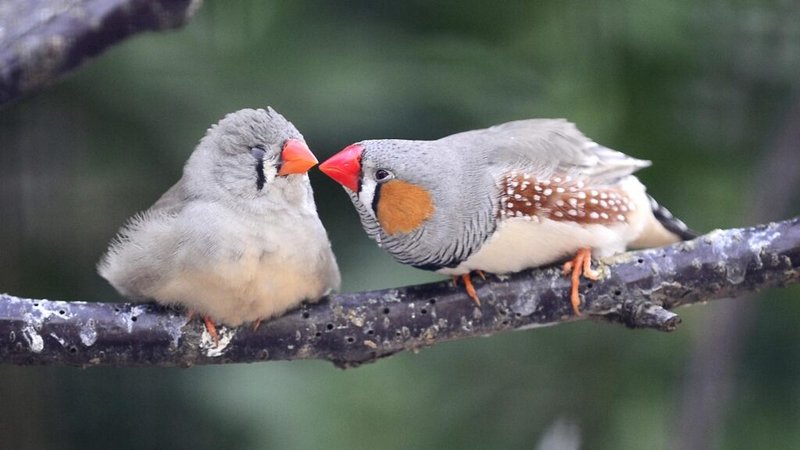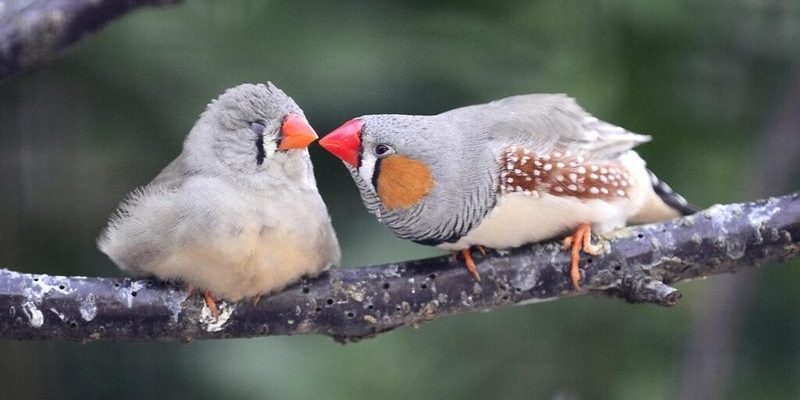
Imagine your finch as a tiny athlete; just like any athlete needs good nutrition, exercise, and a safe environment to thrive, your feathery friend needs the same care. In this article, we’ll explore the common health problems finches face and, more importantly, how to prevent them from becoming a concern, allowing you to be the best pet parent you can be.
Recognizing Signs of Illness in Finches
Before diving into specific health problems, it’s crucial to recognize when your finch may not be feeling well. Finches can be pretty good at hiding their symptoms, making it easy to overlook early signs of illness. If your finch is acting differently, it might be time to pay closer attention.
Some common signs of illness include:
- Changes in behavior: Is your finch more lethargic than usual? Not singing or interacting?
- Poor appetite: If your finch suddenly stops eating or drinking, that’s a red flag.
- Physical changes: Look for ruffled feathers, swelling, or abnormal droppings.
You might be wondering why these signs matter. Early detection can make a huge difference in treatment and recovery. Just like we wouldn’t ignore a bad cough, paying attention to these indicators can help you address potential health issues before they become serious.
Common Health Problems in Finches
Now, let’s dive into some specific health issues finches commonly face. Knowing about these problems helps you prevent them. Here’s a breakdown of some of the most frequent concerns.
1. Birds’ Eye Problems
Finches can suffer from various eye issues, such as conjunctivitis or cataracts. These conditions can stem from poor hygiene or even infections. If you notice your finch squinting or having watery eyes, take action quickly.
Preventative measures include:
- Maintaining cleanliness: Regularly clean your finch’s cage and toys.
- Proper nutrition: Feed your finch a balanced diet rich in vitamins A and E to support eye health.
If you suspect an eye problem, consulting an avian vet is essential. They can provide specialized treatment to help your finch recover.
2. Feathers and Skin Issues
Ah, feathers! They’re a finch’s pride and joy—but problems can arise. Skin infections, feather plucking, or even mites can lead to unsightly and uncomfortable situations for your bird. If you see bald patches or your finch is scratching excessively, it might need some help.
To prevent skin and feather issues:
- Provide a dust bath: Allowing your finch to bathe helps keep feathers clean.
- Check for parasites: Regularly inspect your bird and its environment for signs of mites or lice.
A healthy feather coat isn’t just for looks; it’s essential for temperature regulation and overall well-being.
3. Respiratory Problems
Finches are delicate creatures and can develop respiratory issues due to various factors, including cold drafts or exposure to smoke. Symptoms might include sneezing, coughing, or difficulty breathing. It’s crucial to take these signs seriously, as they can escalate quickly.
To keep your finch’s respiratory system healthy:
- Ensure proper ventilation: Avoid placing your bird’s cage in drafty areas.
- Avoid smoke: Keep your finch away from cigarette or cooking smoke, as these can irritate their lungs.
Your finch’s respiratory health is vital, as they rely on efficient breathing for singing and overall vitality.
4. Digestive Problems
Another area of concern for finches is their digestive health. Common issues include diarrhea and constipation, often stemming from diet or environmental stress. If you notice your finch’s droppings are runny or unusually hard, it’s time to assess their diet.
Prevent issues related to digestion by:
- Feeding a varied diet: Incorporate fresh fruits, vegetables, and high-quality seeds.
- Avoid sudden diet changes: If you do need to change their food, do it gradually.
A balanced diet is crucial—you want your finch to be regular just like we do!
5. Obesity in Finches
You might not think about it, but finches can become overweight, especially if they have a sedentary lifestyle. Just like us, extra weight can lead to myriad health issues, including heart problems and decreased lifespan.
To prevent obesity in your finch:
- Encourage exercise: Provide plenty of space to fly and play daily.
- Monitor food intake: Measure portions and avoid excessive treats.
Keeping your finch active and at a healthy weight is essential for a long, happy life.
Creating a Healthy Environment
Beyond diet and immediate care, creating a nurturing environment can make a world of difference in your finch’s health. Think of their cage as a mini eco-system that needs balance.
Start by:
- Choosing the right cage: Make sure it’s spacious enough for your finch to fly around.
- Adding enrichment: Provide toys, perches, and climbing opportunities to stimulate your finch’s mind and body.
A happy finch is one that feels comfortable and safe in its surroundings, leading to better overall health.
Regular Veterinary Check-ups
Just because finches are small doesn’t mean they don’t require vet care. Routine check-ups can help catch any potential health problems early. It’s similar to how we visit our doctors for check-ups.
A good vet can help with:
- Preventative care: Vaccinations and health screenings can prevent outbreaks.
- Education: Your vet can provide tailored advice specific to your finch’s species and needs.
By establishing a relationship with an avian vet, you’re taking proactive steps to keep your feathered friend in top shape.
Final Thoughts
Finches can be delightful companions, but they do require attentive care to avoid common health problems. By understanding potential issues and taking preventative steps, you can support your finch’s well-being and happiness.
Remember, every little action counts—from monitoring their diet to ensuring a clean living environment. With a bit of mindfulness and regular check-ups, your finch can thrive and fill your home with song and joy for years to come.

